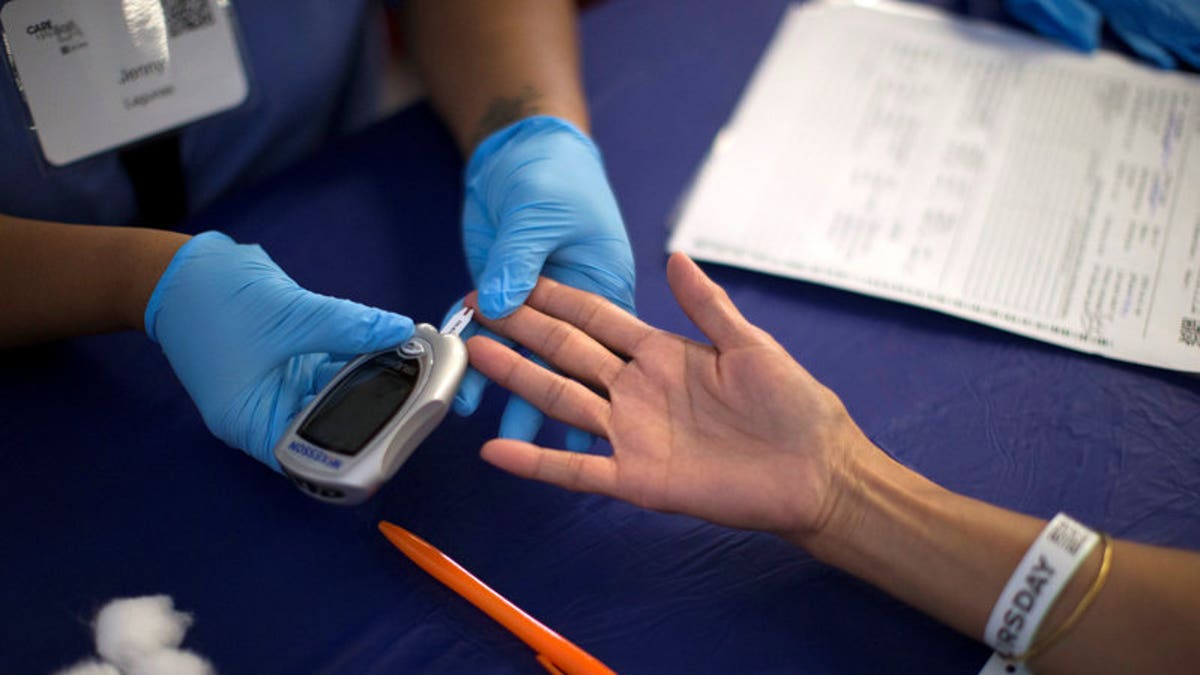
A person receives a test for diabetes during Care Harbor LA free medical clinic in Los Angeles (Copyright Reuters 2016)
LONDON – Gastric surgery should be offered as a standard treatment option for people with diabetes and could help them control their condition for years without medication, the world's leading diabetes organizations said on Tuesday.
In a joint statement which they said constituted one of the biggest shifts in diabetes treatment guidelines since the advent of insulin, the 45-strong group said bariatric, or metabolic, surgery could have a significant benefit for thousands of patients.
Francesco Rubin, a professor and chair of metabolic and bariatric surgery at King's College London and one of the authors of the new guidelines, said many countries across the world are in the midst of "an epidemic of diabetes".
While surgery would not be suitable for all, and should not be seen as a silver bullet solution for the global diabetes problem, Rubino said patients should be offered a range of options - including lifestyle changes, medications and surgery.
"For some, surgery may be the best choice," he told reporters at a briefing in London.
Type 2 diabetes is a long-term condition characterized by insulin resistance. Many patients can manage their diabetes with medication and diet, but the disease is often life-long and is a major cause of blindness, kidney failure, heart attacks, stroke and lower limb amputation.
A recent World Health Organization study found that the number of adults with diabetes has quadrupled in the past four decades to 422 million. International Diabetes Federation (IDF) estimates that by 2040 this will rise to 642 million.
The new guidelines say surgery designed to reduce the stomach and induce weight loss should be recommended to treat all diabetes patients whose body mass index (BMI) is 40 or over, regardless of their blood glucose control, as well as those with a BMI of 30 and over whose blood sugar levels are not being controlled by lifestyle changes or medications.
The guidelines, published in the journal Diabetes Care, were endorsed by 45 international organizations, diabetes specialists and researchers, including the IDF, the American Diabetes Association, the Chinese Diabetes Society and Diabetes India.
Obesity surgery involves the removal of part of the stomach or the re-routing of the small intestine in a bypass operation.
The guidelines are based on a substantial body of evidence, including 11 randomized trials, showing that in most cases surgery can lead to reductions in blood glucose levels below the Type 2 diabetes diagnosis threshold or to a substantial improvement in blood glucose levels.
In many cases this would lead to patients being able to give up or significantly reduce their diabetes medications.
Novo Nordisk, Sanofi and Eli Lilly are the world's leading suppliers of insulin and other diabetes drugs.
"Surgery represents a radical departure from conventional approaches to diabetes," Rubino said. "These new guidelines effectively introduce...one of the biggest changes for diabetes care in modern times."








































